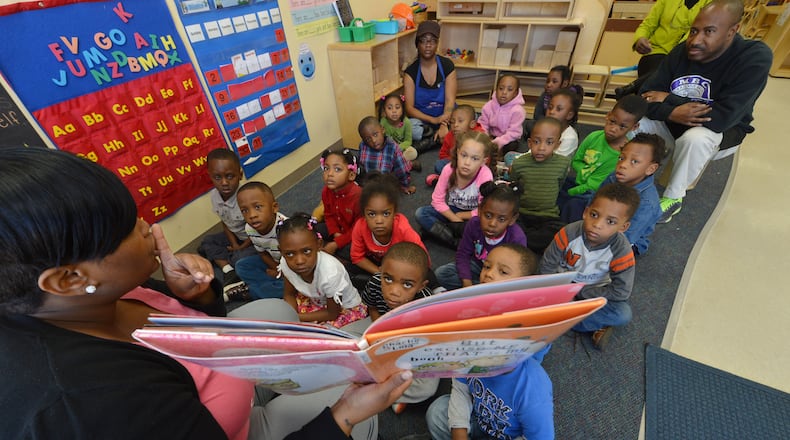As a father of two school-age children in Georgia, I wake up grateful every day for the opportunities my kids have in their local public schools. They have outstanding, experienced teachers, culturally inclusive curricula and engaging extracurricular classes in a safe and affirming environment that fosters intellectual exploration and growth.
But I am profoundly troubled that many young learners across the state are not provided the same opportunities as my children.
Credit: Contributed
Credit: Contributed
This inequality for many children and families in our state weighs heavily on me. Still, I find hope knowing these challenges are not insurmountable. In fact, many practitioners, academics and researchers in education know how to create environments that generate academic excellence and healthy social and emotional development.
In the approaching 2025 legislative session, Georgia lawmakers can make a real difference for many children and families across our state by taking two specific steps forward.
These are not partisan issues. They’re essential steps toward a better future for Georgia families and our state’s economy, and I’m encouraged lawmakers on both sides of the aisle are interested in taking action.
Step 1: Make sure every school has the resources to educate students well
Legislators should make long overdue improvements to the state’s school funding system. How Georgia distributes school funding hasn’t been fully updated in more than 30 years, so the system fails to account for the costs it takes to meet the needs of every student in the public education system. The fact is, money matters.
Our students, teachers and communities are healthier and more vibrant when our local schools have the resources to help every student graduate ready to enter our state’s flagship university.
We cannot ignore the reality that Georgia has more children living in poverty than 43 other states, and families living in poverty are now the majority in about half of Georgia’s school districts.
The Southern Education Foundation, as a member of the Fund Georgia’s Future coalition, is urging state lawmakers in 2025 to add an “opportunity weight” to the school funding system — providing schools with additional funds for each student in low-income families. Most states already do, but our state is among the handful that do not.
Fund Georgia’s Future estimates that adding an opportunity weight would provide about $400 million a year for schools enrolling high rates of students living in low-income families.
What might this accomplish?
If states like Georgia increased overall K-12 school funding to the national average, it would enable schools to hire more teachers and counselors, update technology and facilities and provide tailored academic support to improve learning conditions for all.
A governor’s commission and recent school funding study committees have recommended these types of changes to our school finance system for many years, but lawmakers have failed to make substantive progress in implementing an opportunity weight.
We have waited long enough, and this step will help many thousands of children and families in our state.
Step 2: Make child care in Georgia more affordable. Like most Georgia parents, I understand the benefits of high-quality early education. Expanding proven early childhood programs to reach more families would impact many lives across the state. The early learning ecosystem is the workforce for our workforce and helps stabilize the state’s infrastructure, allowing parents to fully contribute to the economy.
However, the costs of child care continue to escalate. The average cost of infant care has become more expensive than average tuition for public four-year college in Georgia and 33 other states.
Many child care centers across the United States could not operate without state child care subsidies. Georgia lawmakers need to raise our state’s child care subsidy — or reimbursement rate — to a level more comparable to other Southern states.
This action, recently endorsed by the bipartisan state senate study committee on child care, will help centers serve more children, raise caregivers’ pay and lower costs for families — even allowing some parents to join the workforce.
Some lawmakers are also interested in passing a statewide plan to improve children’s reading skills by third grade. But focusing only on reading in early grades without expanding proven early childhood programs or addressing Georgia’s school funding system will not sustain such a goal.
Let’s all work together in 2025 on the issues in education that will make the greatest impact on our state — our quality of life, economy and families like yours and mine.
Fred A. Jones Jr. is the senior director of public policy and advocacy at the Atlanta-based Southern Education Foundation, an organization founded in 1867. He lives with his family in Augusta.
About the Author
Keep Reading
The Latest
Featured


